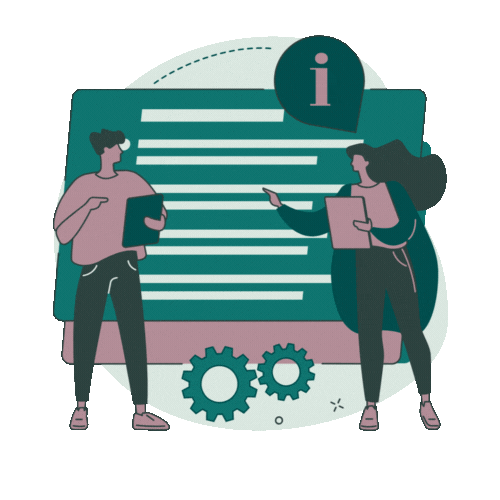
Embarking on the journey of purchasing your first home is a rite of passage for many millennials and Gen-Z buyers. It’s an exciting, yet often daunting, adventure filled with financial decisions, market research, and a steep learning curve. This guide aims to demystify the process of getting your first mortgage, providing you with actionable tips to navigate this significant milestone with confidence.
Understanding Your Mortgage Options

Exploring What’s Available
Before diving into the housing market, it’s crucial to understand the different types of mortgages available. Generally, mortgages are categorized into fixed-rate, where the interest rate remains constant throughout the term, and variable-rate, where rates fluctuate with the market. Each type has its pros and cons, and the right choice depends on your risk tolerance, financial stability, and long-term plans.
Assessing Your Financial Health

Preparing for a Mortgage Application
Lenders will scrutinize your financial health, so it’s essential to get your finances in order before applying. This includes checking your credit score, reducing debts, and assembling necessary documentation. A strong credit score and a low debt-to-income ratio can position you for better mortgage terms.
Budgeting for More Than Just the Mortgage

Considering All Homeownership Costs
Owning a home involves more than just mortgage payments. Property taxes, home insurance, maintenance, and potential homeowners association (HOA) fees should also be factored into your budget. Ensure you have a comprehensive understanding of these costs to avoid financial strain down the line.
Saving for a Down Payment

Determining How Much You Need
One of the biggest hurdles for new buyers is saving for a down payment. The conventional advice is to aim for 20% of the home’s value to avoid paying Private Mortgage Insurance (PMI). However, there are programs available for those who can’t reach this threshold, especially first-time buyers.
Exploring First-Time Buyer Programs

Leveraging Available Assistance
Canada offers several programs to assist first-time buyers, like the Home Buyers’ Plan (HBP) and First-Time Home Buyer Incentive. Research these programs thoroughly as they can offer significant financial benefits and make the process more accessible. You may review our blog post: First-Time Homebuyer Grants in Canada: What You Need to Know, to further aid in your research.
Getting Pre-Approved

Understanding Your Buying Power
Before house hunting, get a mortgage pre-approval. This not only clarifies your budget but also signals to sellers that you are a serious buyer. Pre-approval involves a preliminary assessment by a lender of how much they’re willing to lend you, based on your financial status.
Choosing the Right Lender

Shopping Around for the Best Deal
Don’t settle for the first mortgage offer. Shop around and negotiate with various lenders to find the best rates and terms. Consider credit unions, local banks, and online lenders in addition to major financial institutions.
Understanding Mortgage Terms and Conditions

Reading the Fine Print
Mortgage contracts can be laden with complex terms and conditions. Take the time to understand aspects like amortization period, payment frequency, and prepayment privileges. If in doubt, consult with a financial advisor to clarify any confusing terms.
Planning for the Future

Long-Term Considerations
Think long-term when choosing your mortgage. Consider your future plans and how your mortgage will fit into those. Will you need flexibility to move or refinance? How will your mortgage impact other long-term financial goals?
You're in the drivers seat
Securing your first mortgage is a significant step towards homeownership. By doing your homework, assessing your finances, and understanding the process, you can navigate this journey more smoothly. Remember, this is just the beginning of a rewarding path to owning your dream home.
Ready to take the first step in your homeownership journey? Contact a Genesis Group mortgage advisor today to discuss your options and start the pre-approval process.
Glossary:
Fixed-Rate Mortgage: A mortgage with a consistent interest rate throughout the loan term, ensuring stable and predictable payments.
Variable-Rate Mortgage: A mortgage where the interest rate can fluctuate based on market conditions, affecting monthly payment amounts.
Credit Score: A numerical rating based on an individual’s credit history, used by lenders to assess creditworthiness.
Debt-to-Income Ratio: A measure comparing an individual’s total debt to their income, used by lenders to gauge the ability to manage monthly payments.
Private Mortgage Insurance (PMI): Insurance that protects the lender if the borrower defaults on the loan, typically required for down payments less than 20%.
Home Buyers’ Plan (HBP): A Canadian program allowing first-time homebuyers to withdraw from their RRSPs to buy or build a home.
First-Time Home Buyer Incentive: A Canadian government program offering interest-free loans to first-time homebuyers to reduce monthly mortgage payments.
Mortgage Pre-Approval: A lender’s preliminary assessment of a buyer’s ability to pay for a home, giving an estimate of how much they would be willing to lend.
Amortization Period: The total length of time it takes to pay off a mortgage in full.
Prepayment Privileges: Terms in a mortgage contract that allow the borrower to pay off the mortgage faster without penalties.
FAQs:
How much should I save for a down payment on a home?
It’s generally recommended to save at least 20% of the home’s value to avoid paying Private Mortgage Insurance (PMI). However, there are programs available for those who can’t meet this threshold.
Is it better to choose a fixed-rate or variable-rate mortgage?
It depends on your financial situation and risk tolerance. Fixed-rate mortgages offer stability, while variable rates can provide savings in a declining interest rate environment but carry the risk of rate increases.
What is the importance of getting a mortgage pre-approval?
A mortgage pre-approval gives you a clear idea of what you can afford and shows sellers that you’re a serious buyer. It also helps to speed up the actual mortgage approval process once you find a home.
Can I negotiate mortgage rates with lenders?
Yes, you can—and should—shop around and negotiate with different lenders to find the best rates and terms for your mortgage.
What should I consider when choosing a mortgage term?
Consider your long-term financial plans and how flexible you need your mortgage to be. Think about your ability to handle possible interest rate increases if you choose a variable-rate mortgage.
Are there special programs for first-time homebuyers in Canada?
Yes, programs like the Home Buyers’ Plan (HBP) and the First-Time Home Buyer Incentive offer financial assistance and incentives to first-time buyers in Canada.








